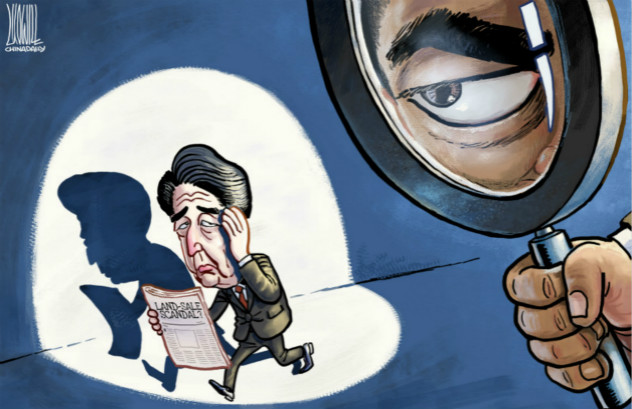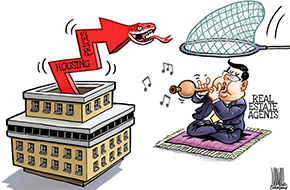Don't shoot the messenger
Instead of over-interpreting the recent short selling of Chinese
hares by international investors, we should consider the problems that exist in our economic development.Despite disagreements over the exact volume of local government debt that exists, there is no disputing the amount already stands very high. According to the data released by the country's auditing authorities, China's government debts are more than 10 trillion yuan ($1.61 trillion). The Chinese Academy of Social Sciences estimates the amount could be 30 to 40 trillion yuan, while the Barclays Group estimates it could be as high as 50.44 trillion yuan, 62 to 97 percent of the country's GDP. Some estimates even suggest it could be more than 100 trillion yuan.
Despite the transparency of its central government debts, the country has not set up a transparent debt-holding mechanism at the local level, and this is exacerbating the risks.
The red-hot real estate market adds to the risks. China's real estate market has come to a dangerous level. The widespread construction boom across the country, mostly funded by bank loans or higher-interest non-governmental financing, means that there will be chain reactions in the Chinese economy once there is a continuous decline in property prices. The risks brought about by economic development dependent on real estate will easily prompt international investors to withdraw once short-term profits are gained.
Also the volume of non-performing lending held by China's commercial banks reached 524.3 billion yuan at the end of March, an increase of 20.7 percent from a year earlier, and the amount is expected to further rise in the future. The debt-holding ratio of China's central enterprises continues to rise to the 70 percent alert line set by the country's state assets watchdog. It is also evidence that China's economy now lacks an intrinsic driving force.
Due to the regulating of cross-border capital flows, international capital still has difficulties short selling Chinese shares. But attention should be paid to the factors that have resulted in the negative outlook on China's economy. Instead of becoming involved in quarrels with foreign investors, we should focus on reducing the risks and uncertainties in our economic system by pushing forward some necessary reforms, such as those aimed at a soft landing for local government debt and the real estate market and the real transformation of its economy.
The author is an economics commentator with the School of Economics and Management under the Beijing University of Science and Technology.
(China Daily 05/06/2013 page8)

























